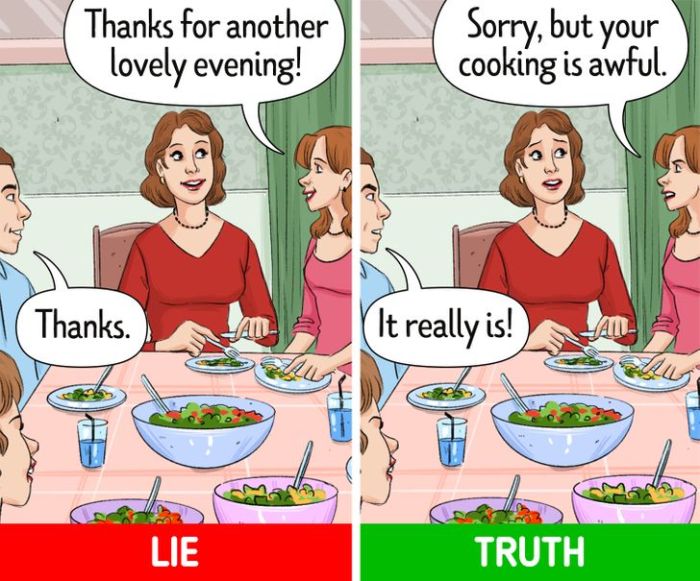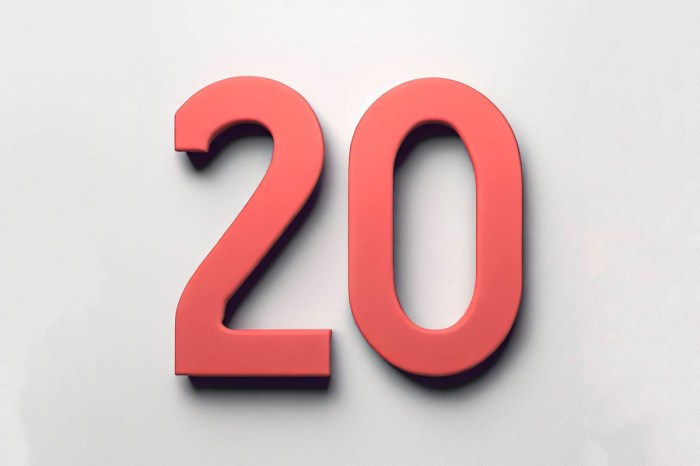How to make time go faster? It’s a universal desire, isn’t it? We’ve all experienced that frustrating feeling of dragging hours out when waiting, or the exhilarating rush of time seemingly flying by when we’re deeply engrossed in something. This guide explores the psychology of perceived time, offering strategies and activities to help you master this fascinating phenomenon.
From understanding the role of emotions to practical techniques, you’ll discover how to manipulate your perception of time and make the most of every moment.
We’ll delve into the psychological factors behind our perception of time, exploring how emotions, mental states, and activities impact how quickly or slowly time seems to pass. Then, we’ll explore practical strategies, like prioritization and mindfulness, to actively influence your perceived time flow. Finally, we’ll examine how time perception varies in different contexts, and provide techniques to make time feel shorter, even in stressful situations.
Let’s embark on this journey to understanding and mastering the fleeting nature of time.
Understanding the Perception of Time
Time, a relentless river flowing ever onward, feels sometimes like a glacial current, and other times a rushing torrent. This isn’t simply a matter of objective measurement; our subjective experience of time’s passage is profoundly shaped by our internal states and external circumstances. Our brains don’t passively record time; they actively interpret and construct it.Our perception of time is a complex interplay of psychological factors, making it both a fascinating and elusive concept.
Emotions, attention, and even our mental state all contribute to how we experience the flow of time. Sometimes, moments that should have been long stretch into mere seconds, while others seem to drag on for eternity. Understanding these psychological factors allows us to gain a more nuanced appreciation for the subjective nature of time.
Psychological Factors Influencing Time Perception
Our perception of time is intricately linked to our cognitive processes. The amount of information we process, the level of engagement, and the emotional intensity associated with an experience significantly affect how quickly or slowly it feels. Our brains are not perfectly accurate clocks. Instead, they actively construct a representation of time based on the input they receive.
Role of Emotions and Mental States
Emotions play a crucial role in shaping our experience of time. Anxiety and anticipation tend to slow down the perceived passage of time, as our minds focus intensely on the impending event. Conversely, when we’re fully engrossed in something enjoyable or engaging, time seems to fly by. Joyful experiences, when we’re fully immersed in them, cause our perception of time to speed up, while stressful situations make it feel like time is moving more slowly.
Examples of Time Acceleration and Deceleration
A thrilling roller coaster ride feels like a blur, the moments rushing by in a whirlwind of sensations. Conversely, a long, boring lecture can stretch on for an eternity, the minutes dragging by with agonizing slowness. Waiting for an important phone call can feel like an agonizingly long period of time, the minutes stretching into what feels like hours.
In these examples, our emotions and attention dictate the perceived speed of time’s passage.
Comparison of Activities and Perceived Time Speed
| Activity | Perceived Time Speed | Reasons |
|---|---|---|
| Engaging in a hobby | Faster | Focus and enjoyment lead to a heightened sense of presence, causing the experience to feel more compressed. |
| Waiting for an event | Slower | Anticipation and anxiety increase the perceived duration of the wait. The mind focuses on the upcoming event, stretching out the present moment. |
| Engaging in a boring task | Slower | Lack of engagement and interest lead to a sense of time dragging on, as the mind wanders and the present moment feels stretched out. |
Strategies for Managing Perceived Time
Time, that elusive entity, often feels like it stretches or contracts depending on our experiences. While we can’t alter the passage of actual time, we can significantly influence how we perceive it. This section delves into strategies to manage our perception of time, allowing us to feel more in control and less constrained by its apparent limitations. Understanding these strategies can be instrumental in maximizing productivity and minimizing feelings of time pressure.The strategies Artikeld below offer practical approaches to enhance the perception of time’s passage, enabling a more fulfilling and less rushed experience.
By focusing on specific techniques, we can shift our perspective from feeling overwhelmed by time constraints to feeling more empowered and in control of our schedules.
Prioritization Techniques
Effective prioritization is key to managing time effectively. Identifying the most crucial tasks and focusing on them first helps create a sense of accomplishment and progress. This, in turn, can significantly influence our perception of time, making it feel like it moves faster. Completing important tasks early allows for a feeling of control and accomplishment, and the ability to delegate less important tasks.
Task Breakdown Strategies
Large, complex tasks can be intimidating and make time feel stretched and overwhelming. Breaking down such tasks into smaller, more manageable steps creates a sense of progress, even with seemingly insignificant actions. Each completed step reinforces a feeling of accomplishment, fostering a sense of momentum and accelerating the perceived passage of time. This technique works by providing a visible path toward completion, which is reassuring and motivating.
Mindfulness Exercises
Mindfulness techniques encourage us to focus on the present moment, reducing the tendency to dwell on the past or worry about the future. This shift in focus can lead to a faster perception of time. By actively engaging with the present, we reduce the tendency to mentally review the past or anticipate the future, which often leads to feelings of time pressure and anxiety.
The result is a feeling of greater awareness and appreciation of the current moment, making time feel less constrained.
Comparison of Time Management Strategies
| Technique | Description | Perceived Time Effect |
|---|---|---|
| Prioritization | Focus on most important tasks first | Faster perceived time due to a sense of accomplishment and progress. |
| Breaking tasks down | Divide large tasks into smaller, manageable steps | Faster perceived time due to visible progress and reduced intimidation. |
| Mindfulness exercises | Focus on the present moment, avoiding dwelling on past or future | Faster perceived time by reducing mental distraction and increasing awareness of the present. |
Activities to Enhance Time Perception: How To Make Time Go Faster
Time, as we experience it, is a subjective construct. How quickly or slowly it seems to pass is often more a reflection of our mental state than an objective reality. Certain activities can significantly alter our perception of time, making moments fly by or dragging them out. Understanding these activities can be useful in managing our experience of time and optimizing our day.
Engaging Activities and Time Perception
Our brains process experiences differently depending on the level of engagement and focus. When we are deeply involved in an activity, our perception of time can change dramatically. This is because our attention is fully absorbed, reducing the awareness of the passage of time. Conversely, when we are bored or unfocused, time seems to drag on.
Activities that Accelerate Time
Engaging activities often accelerate our perception of time. When we’re fully absorbed in a task or activity, the experience seems to compress. This is often linked to the concept of flow, a state of complete immersion in an activity.
- Reading an absorbing book: A captivating storyline, intricate characters, and a compelling plot can transport us to another world, making the time spent reading seem to pass more quickly. We lose track of the hours, absorbed in the narrative. The immersive nature of a good book often results in a heightened sense of engagement, thus distorting our perception of time.
- Engaging in a stimulating conversation: Intellectual exchanges and lively discussions can hold our attention, making the time spent in conversation feel shorter. The exchange of ideas and the shared experience of interacting with others create a sense of flow, often unnoticed by the participants. The mental effort involved in the discussion can influence time perception.
- Participating in a challenging game: Games, whether board games, video games, or sports, require focused attention and strategic thinking. The excitement and challenge of the game often lead to a sense of flow, making the time spent playing feel more condensed. The intensity and concentration required during gameplay are directly linked to a quicker perceived passage of time.
- Watching an exciting movie: Movies often use compelling narratives, special effects, and emotional cues to captivate the audience. The immersion in the movie’s world can distort our perception of time, making the movie seem shorter than it actually is. The combination of visual stimulation and narrative structure often leads to a heightened sense of engagement, making time pass faster.
Time Perception in Different Contexts

Our perception of time isn’t a constant, unchanging flow. Instead, it’s profoundly shaped by the context in which we experience it. This fluidity allows us to adapt to different situations and prioritize accordingly. Understanding these contextual variations is key to effectively managing and appreciating the time we have.Time perception is a dynamic experience, significantly influenced by our mental and emotional state, the activities we’re engaged in, and the environment around us.
Different situations can dramatically alter our experience of time’s passage, making it seem either compressed or stretched. This malleability is an intrinsic part of the human experience, and acknowledging its existence is crucial for personal well-being and productivity.
Feeling like time is dragging? It’s a common feeling, and honestly, sometimes it just feels like you’re falling behind. But instead of letting that feeling overwhelm you, check out this insightful post on how to manage those feelings of being behind, like in this great article about overcoming the feeling of being behind in life dont discouraged you ever feel like you fall behind life 2.
Focusing on the present moment and setting realistic goals can actually make time seem to fly by. It’s all about perspective and prioritizing what truly matters.
Variations Across Contexts
Our internal clocks aren’t static. Their speed, or perceived speed, adjusts to match the demands and emotional tones of our surrounding environment. The following table illustrates this.
| Context | Factors | Perceived Time Speed |
|---|---|---|
| Stressful Situation | High Anxiety, Pressure, Uncertainty | Slower |
| Relaxing Vacation | Low Stress, Enjoyment, Mindfulness | Faster |
| Social Event | Engagement, Interaction, Shared Experiences | Faster |
| Monotonous Task | Repetitive Actions, Lack of Stimulation | Slower |
| Learning New Skill | Focus, Immersion, Curiosity | Slower, but potentially faster if enjoying the process |
Factors Influencing Time Perception
Several factors play a role in how quickly or slowly time feels to pass. These include:
- Emotional State: High levels of anxiety or stress can make time feel like it’s dragging on, while happiness and excitement can cause it to zip by. This is because our brains focus on the present moment in these states.
- Engagement: Tasks that hold our interest and attention, like a gripping book or an engaging conversation, tend to make time feel faster. Conversely, monotonous tasks, like waiting in line, make time seem to pass more slowly.
- Environmental Factors: A stimulating environment, like a bustling city, can feel like time is passing more quickly than a calm, quiet setting, like a library.
- Physical and Mental Health: Illness, fatigue, or lack of sleep can affect our perception of time, making it feel longer than usual.
Examples of Contextual Differences
Consider these examples to further understand how time perception varies:
- A thrilling roller coaster ride might feel like it lasts only a few minutes, despite taking considerably longer. The high level of excitement and engagement causes time to seem compressed.
- Waiting in a long queue for a service can feel like an eternity. The boredom and lack of stimulation cause the passage of time to be perceived as significantly slower.
- A birthday party with loved ones might fly by in a flash. The joy, interaction, and shared experiences make the time feel compressed.
Changes in Different Situations
Time perception isn’t static; it adapts to the situation. This means that the way we experience time can change depending on the environment and our emotional state.
- A challenging project at work may feel like it takes forever to complete, especially if it’s stressful. However, when the project is finished, it may seem like it only took a few days.
- A relaxing vacation, filled with enjoyable activities, might feel like it whizzed by, leaving you wanting more.
Techniques to Make Time Seem Shorter

Feeling like time is dragging? We often perceive time differently depending on our emotional state and how engaged we are. Understanding these perceptions can be a powerful tool in managing our experience of time, particularly when we want to make it feel less burdensome. This section delves into techniques to make time feel shorter, focusing on practical strategies and examples.Time perception is highly subjective.
Ever feel like time just drags on? Sometimes, focusing on something completely different can actually make time seem to speed up. For example, discovering how your body responds to a new daily routine, like drinking honey water every day, can be surprisingly effective. This what will happen when you start drinking honey water every day might help you appreciate the little moments more, which can make even mundane tasks seem less tedious.
Ultimately, finding healthy habits that keep you engaged and present can help you make time feel less like a burden and more like a beautiful journey.
What feels like a long, agonizing hour to one person might seem to zip by in a flash for another. This subjective experience can be influenced by several factors, from the activities we’re involved in to our overall emotional state. Mastering these techniques can give you more control over how you perceive and interact with time.
Focusing on the Present Moment
The present moment is often the most fleeting aspect of time, but also the most potent. Focusing on the present reduces the sense of time dragging. Engage in activities that fully immerse you in the here and now. This can involve paying close attention to your senses – the taste of food, the feel of the sun on your skin, the sound of music.
When you are fully present, your focus shifts away from anxieties about the past or worries about the future. This shift can make time feel shorter because you’re not dwelling on what has already happened or what might happen.
Setting Realistic Goals
Unrealistic goals can create a sense of pressure and stress, making time feel stretched out. By setting realistic and achievable goals, you create a sense of accomplishment and progress, which can accelerate your perception of time. Break down large tasks into smaller, manageable steps. This allows for a more continuous flow of accomplishment, and each step completed reinforces a feeling of progress.
This can also make time feel less daunting and more manageable.
Prioritizing Tasks
Prioritizing tasks allows you to focus on what truly matters, reducing the feeling of being overwhelmed. By identifying and completing high-priority tasks first, you gain a sense of accomplishment and reduce the mental load associated with unfinished tasks. This clarity of purpose can significantly impact how you perceive time. If you’re constantly juggling multiple tasks that feel overwhelming, prioritize to create a sense of order and accomplishment, thus shortening the perceived time.
Feeling like time drags? One way to make time fly is to foster a positive work environment. This directly relates to retaining top talent, which is crucial for any business. Investing in your team, providing opportunities for growth, and showing genuine appreciation, as outlined in this insightful guide on how not to lose your best employee , can dramatically improve productivity and overall well-being.
In turn, this positive atmosphere can make even the most mundane tasks feel like they’re whizzing by.
Mindfulness Practices
Mindfulness practices, like meditation and deep breathing exercises, can significantly alter your relationship with time. These practices train your mind to observe thoughts and feelings without judgment. By cultivating a sense of awareness, you detach from the narrative of time’s relentless passage. Mindfulness allows you to fully experience the present moment, thus diminishing the perception of time as a linear progression.
For example, a 15-minute meditation can feel like 5 minutes if you’re fully present.
Managing Stress
Stress significantly impacts time perception. Stressful situations can distort our sense of time, making it feel like it’s moving slowly. Techniques like progressive muscle relaxation, deep breathing, or engaging in a calming activity can help manage stress and shorten the perceived duration of a stressful situation. A relaxed state allows you to experience time more naturally.
Examples of Techniques in Action
Imagine a long commute. If you focus on the present by observing the scenery, listening to music, or engaging in a stimulating podcast, the commute will feel shorter than if you’re preoccupied with worries. Similarly, if you’re faced with a deadline, setting realistic goals and prioritizing tasks can reduce stress and make the time feel more manageable. Mindfulness practices can also help you detach from the stress of the deadline and appreciate the present moment.
Time Perception and Productivity
Time, a relentless river, flows regardless of our perception. Yet, how we perceive time profoundly impacts our productivity. Understanding this connection is crucial for optimizing our efficiency and achieving our goals. We often find ourselves struggling to manage tasks, feeling overwhelmed by deadlines, or simply feeling like time is slipping away faster than we can keep up.
This is not a problem of time itself, but a problem of how we perceive and manage our time.Our perception of time is far from objective. Factors like stress, excitement, and engagement can dramatically alter our subjective experience of time’s passage. This means that understanding how our brains process time is key to leveraging it effectively and improving productivity.
A crucial aspect of this understanding is the connection between focus and perceived time.
Impact of Time Perception on Productivity
Time perception significantly influences productivity by affecting our motivation, focus, and overall sense of accomplishment. When we feel time is flying by, we might rush through tasks, leading to decreased quality and potential errors. Conversely, when time seems to drag, we might procrastinate, further hindering our progress. This demonstrates a clear link between our internal clock and our ability to accomplish tasks efficiently.
For instance, a task perceived as lengthy might discourage us from initiating it, whereas a task seen as quick might inspire us to complete it swiftly.
Relationship Between Focus and Perceived Time
The level of focus we dedicate to a task directly impacts our perception of time. When we are deeply engaged and focused, time seems to fly by. This phenomenon, known as “flow,” is characterized by complete absorption in the activity at hand. Conversely, when we are distracted or unfocused, time feels slow and arduous. This is why establishing and maintaining focus is essential for maximizing productivity and achieving a more fulfilling sense of time.
For example, a student immersed in studying a subject they enjoy will find time passing quickly, whereas a student struggling to concentrate might perceive the same study period as incredibly long.
Strategies for Improving Productivity While Maintaining a Sense of Time
Effective time management strategies, when combined with an understanding of time perception, can significantly enhance productivity. A well-structured schedule, coupled with clear goals and priorities, can help you maintain focus and control your perceived time. Breaking down large tasks into smaller, more manageable chunks can also make the overall process feel less overwhelming and, therefore, accelerate the perception of time passing.
Prioritizing tasks based on importance and urgency further helps in optimizing time management, allowing us to focus on high-value activities. Timeboxing, a technique that involves allocating specific time slots for specific tasks, can be especially helpful. By assigning a time limit to a task, you can avoid getting bogged down in it and keep a sense of control over your time.
Optimizing Time Management Strategies, How to make time go faster
Optimizing time management strategies directly affects both productivity and our perception of time. Time management, when effectively applied, empowers us to control our tasks and, consequently, our perceived time. The more organized we are in managing our time, the less time feels like it is slipping away. Techniques such as the Pomodoro Technique, which involves working in focused intervals with short breaks, can help maintain concentration and a sense of control over time.
By actively managing our time, we gain a sense of mastery over our schedule and our perception of time’s passage. This, in turn, enhances productivity.
Final Review
In conclusion, the perception of time is a fascinating interplay of psychology, activities, and context. While we can’t truly control the passage of time, we can definitely influence how we experience it. By understanding the psychological factors at play, implementing effective strategies, and engaging in activities that captivate our attention, we can significantly affect how quickly or slowly time seems to pass.
This knowledge allows us to optimize our experience, making the most of every moment, from those tedious waits to those precious moments of joy and accomplishment.










